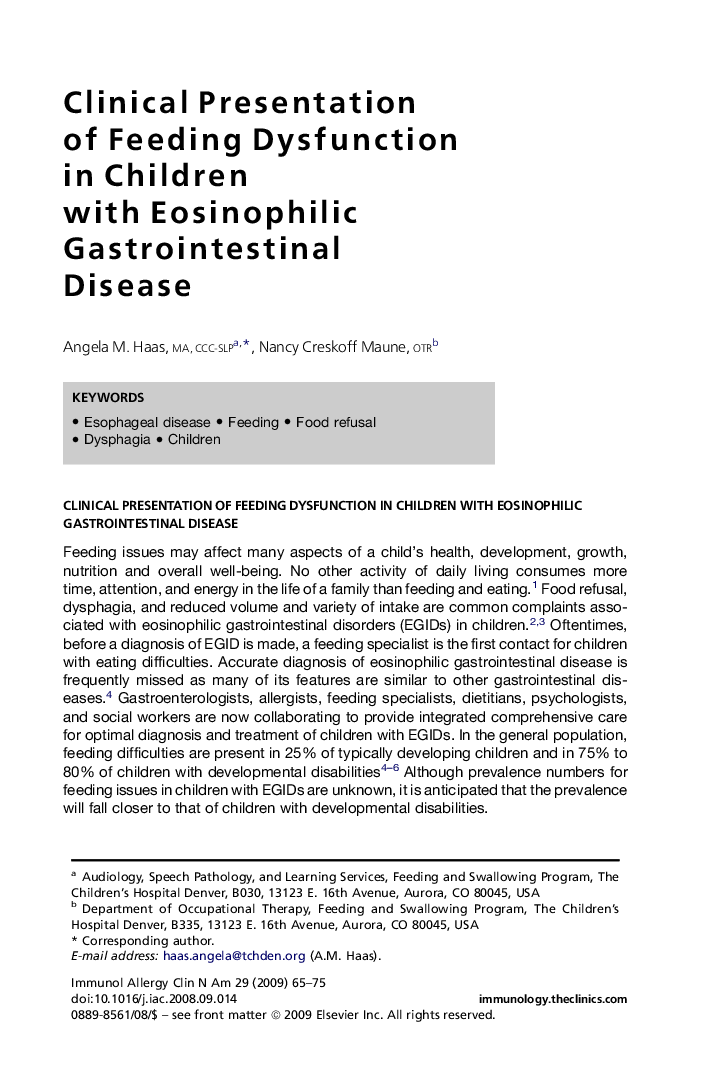| Article ID | Journal | Published Year | Pages | File Type |
|---|---|---|---|---|
| 3355049 | Immunology and Allergy Clinics of North America | 2009 | 11 Pages |
Feeding issues may affect many aspects of a child's health, development, growth, nutrition and overall well-being. There is a developmental continuum for the acquisition of feeding skills, which includes motor skills, sensory systems, behavioral/emotional components and communication. Food refusal, dysphagia, reduced volume and reduced variety of intake are common complaints associated with eosinophilic gastrointestinal diseases in children. As the understanding of this disease process evolves, clinicians are recognizing that feeding difficulties are a prevalent characteristic of children with eosinophilic gastrointestinal disease and the difficulties can disrupt a child's progress along the typical developmental feeding continuum. Despite effective medical treatment, the residual effects on feeding can persist and need to be addressed. Collaboration regarding the medical, nutritional, and developmental plan of care optimizes outcomes for the well-being of children and families affected by this disease.
